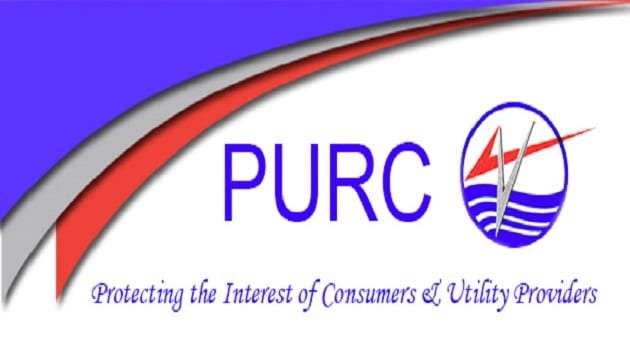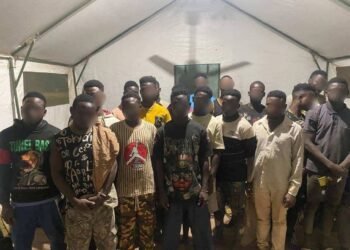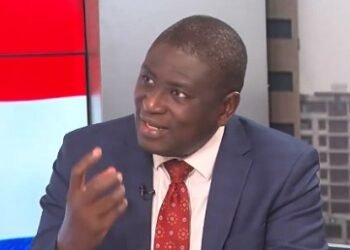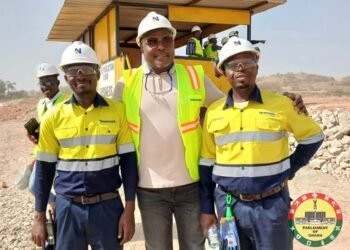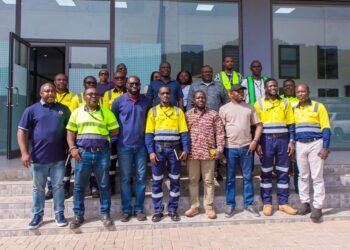The Public Utilities Regulatory Commission (PURC) has begun nationwide public hearings on tariff proposals submitted by utility companies as part of the 2025–2029 Multi-Year Tariff Review, opening a critical window for stakeholder engagement on the future of Ghana’s utility pricing.
The first session, held in Accra, brought together key voices including the Trade Union Congress (TUC), civil society organisations, and the media to deliberate on tariff proposals and their potential impact on households, businesses, and the broader economy.
Opening the discussions, Dr. Shafic Suleman, Executive Secretary of PURC, underscored the Commission’s determination to ensure fairness and transparency in tariff determination.

“The goal of creating this platform is to promote transparency, inclusiveness, and accountability in tariff setting, while ensuring that the Commission’s decisions strike a balance between economic realities and social considerations.”
Dr. Shafic Suleman, Executive Secretary of PURC
He stressed that the hearings would not merely be symbolic but would form a substantive part of the Commission’s decision-making process. “Every input, whether from labour, industry, or consumers, will be factored into the framework that guides our final determinations,” he added.
The hearings are part of PURC’s statutory mandate to regulate electricity, water, and natural gas tariffs, a task that has often drawn heated debate in Ghana, where utility affordability is closely tied to broader economic stability.
Labour Union Raises Concerns

In his remarks, Mr. Joshua Ansah, Secretary General of the TUC, emphasised the importance of public participation in the tariff review process and urged Ghanaians to contribute actively to the consultations.
He drew particular attention to the connection between environmental degradation and rising water costs, noting that unchecked illegal mining, popularly known as galamsey is compounding operational expenses for the water utility.
“Reducing pollution at water intake points will cut operational costs for Ghana Water Limited and ultimately prevent workers from paying unnecessarily high tariffs.”
Mr. Joshua Ansah, Secretary General of the TUC
He added that fair and affordable tariffs are essential to support the government’s flagship initiatives, including the proposed 24-Hour Economy, which will rely heavily on consistent and reliable utility supply.

So far, several utilities have presented and defended their tariff proposals before the Commission, including the Electricity Company of Ghana (ECG), Enclave Power Company Limited, Volta River Authority (VRA), Northern Electricity Distribution Company Limited (NEDCo), Ghana Grid Company Limited (GRIDCo), Ghana National Gas Company Limited, and the Ghana Water Company Limited.
These proposals vary in scope but collectively reflect the utilities’ push for cost-reflective tariffs to ensure financial sustainability and enable investments in infrastructure.
Utility executives have consistently argued that without upward adjustments, Ghana risks power outages, water supply disruptions, and stalled infrastructure projects.
They point to rising operational costs, currency depreciation, and increasing demand as key pressures driving the requests for tariff hikes.
Stakeholders at the hearing highlighted the delicate balance the Commission must strike in its final decision.
While utilities stress the need for cost recovery to sustain operations, consumer groups argue that steep tariff increases could push vulnerable households into deeper financial distress.
Civil society groups present at the session echoed calls for a more innovative approach, suggesting that efficiency gains, loss reduction, and improved revenue collection must complement any tariff adjustments.
Participants also flagged the importance of equity in utility pricing, stressing that reforms should not disproportionately burden low-income households.
Regional Engagements Ahead

The PURC confirmed that the Accra session is the first in a series of regional engagements that will take place across the country in the coming weeks.
These forums will allow residents in all 16 regions to voice their concerns directly, ensuring that the process reflects the diverse socio-economic realities across Ghana.
Feedback gathered from these regional hearings, along with inputs from civil society and industry stakeholders, will form the backbone of the Commission’s final deliberations before tariff announcements are made.
Dr. Suleman reiterated that the Commission’s ultimate objective is to balance the financial viability of the utilities with consumer protection and national development.
“Utility pricing is about more than numbers, it is about people, livelihoods, and the future of our economy.
“That is why our decisions must be guided by fairness, responsibility, and inclusiveness.”
Dr. Shafic Suleman, Executive Secretary of PURC
The 2025–2029 Multi-Year Tariff Review is expected to set the tone for Ghana’s energy and water sectors over the next four years, influencing everything from household budgets to industrial competitiveness.
As the nationwide consultations continue, all eyes will be on the PURC to deliver a decision that safeguards national stability, supports industrial growth, and upholds the principles of fairness and transparency.
READ ALSO: Market Cheers as Ghana’s Treasury Auction Breaks Four-Week Drought with 15.8% Oversubscription

